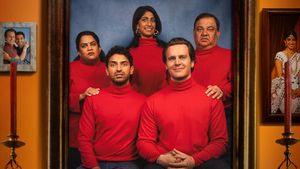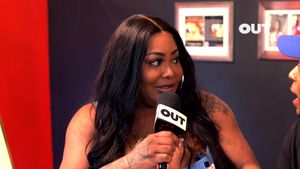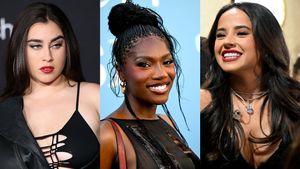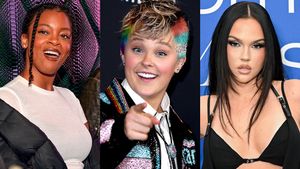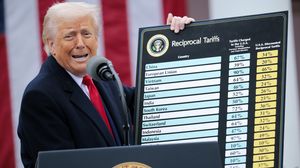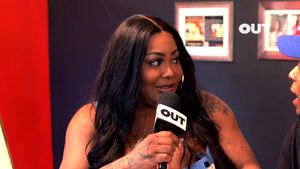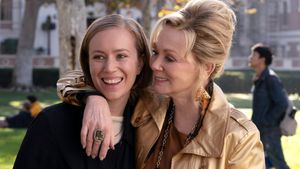With Tuesday's
national election dominated by discontent with the Iraq
War and some polls showing the race tightening, Republicans
and Democrats pushed their get-out-the-vote efforts to
full throttle and political luminaries hopscotched
across the nation on behalf of candidates.
President George
W. Bush jetted to Florida on Monday to campaign for
Republican candidates, but Charlie Crist--the
Republican candidate for governor who has been
battling rumors that he is gay--planned to duck a
rally with Bush in Pensacola to campaign at the Lox Around
the Clock restaurant in Delray Beach.
The White House
staff, which had already distributed schedules saying
Crist would introduce Bush at the rally, was clearly
irritated with the candidate's decision not to appear
with the president. Bush political strategist Karl
Rove mockingly questioned what kind of alternative rally
Crist could put together that would rival the 10,000-person
crowd Bush was expected to draw.
Meanwhile, former
President Bill Clinton, the Democrats' star campaigner,
campaigned in New York state on behalf of Democratic
candidates for the House of Representatives before
flying to Virginia for Senate challenger Jim Webb and
Rhode Island to be with Senate candidate Sheldon Whitehouse.
Clinton's wife, New York senator Hillary Rodham Clinton, is
expected to win re-election handily.
Iraq has
dominated the campaign season, and Republicans and Democrats
sparred over the war again Sunday following Saddam Hussein's
conviction on crimes against humanity. He was
sentenced to die by hanging; an appeal is planned.
Democrats hope to
ride voter disapproval of Bush, the war, and a
scandal-plagued Republican Congress to regain control of the
Senate and the House. They need a gain of 15 seats in
the House, where all 435 seats are up for a vote, and
of six in the 100-member Senate, where 33 seats are on
the ballot.
Republicans and
Democrats sent thousands of volunteers to states with the
most contested races to work phone banks and canvass
neighborhoods to turn out voters. The greatest
obstacle for both parties is the historical tendency
for voter turnout to be mediocre in nonpresidential
elections. Both parties have put together legal teams
for possible challenges regarding voting.
Polls showed a
mixed picture of the electorate. A CNN poll released
Monday said 58% of likely voters would cast their ballots
for Democrats running for Congress and 38% for
Republicans. But a Pew survey and a Washington
Post-ABC News poll showed the gap narrowing to four to six
percentage points.
''I think there
is a lot of energy on the Democratic side. It was
inevitable that the Republicans on their side would start to
come back a little. But from early indications from
our side, our field operation, I feel good about it,''
Congressman Rahm Emanuel, chairman of the House
Democratic effort, told reporters in a conference call on
Monday.
Said Republican
Party chairman Ken Mehlman in a memo: ''New polls say our
party is heading into Election Day with strong momentum.''
Among hundreds of
referendums, eight states will vote on proposed bans on
same-sex marriage. Passage is considered certain in Idaho,
South Carolina, and Tennessee. But gay rights leaders
believe their side is at least competitive in Arizona,
Virginia, Wisconsin, Colorado, and South Dakota. In
addition to a proposed marriage ban, Colorado voters will
also decide whether to give gay couples the right to
form domestic partnerships, providing some of the
state-level rights and protections afforded to married
couples. (AP, with additional reporting by The
Advocate)







